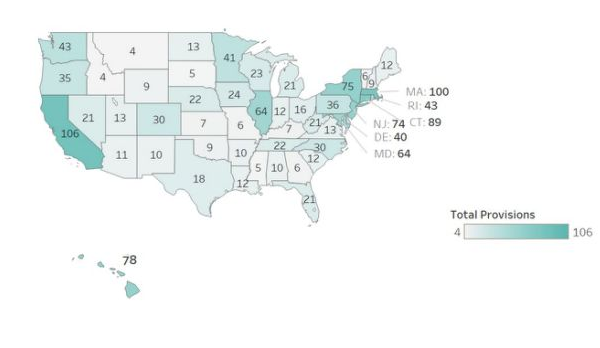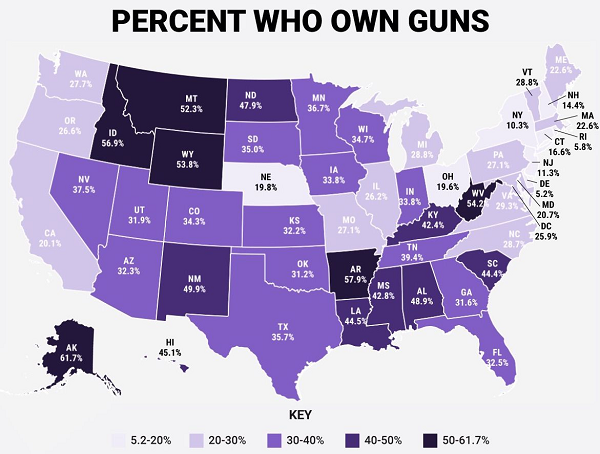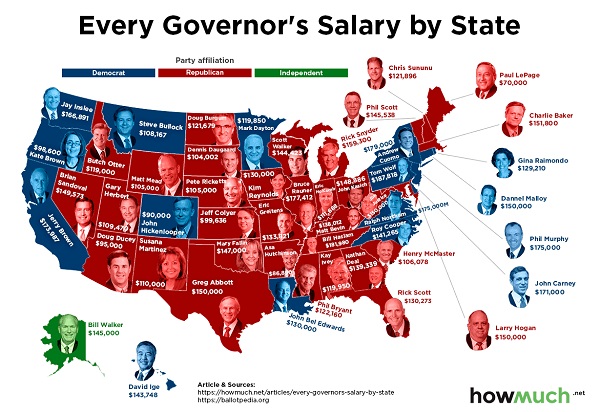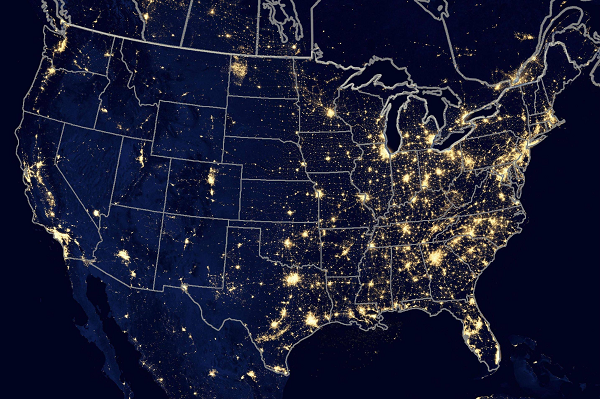Democrats are now all-in on the effort to spark a civil war in America before Trump can win re-election in 2020. The philosophy of Democrats, of course, is, “If we can’t rule it, we will destroy it.” And they know the Trump administration in inching closer every day to revealing the full breadth of corruption and criminality of Barack Obama, Hillary Clinton, John Brennan, James Comey and other treasonous criminals (including John McCain).
Notably, all Americans need to understand that until John Brennan, James Comey,
Barack Obama and Hillary Clinton are arrested and indicted, there is no legitimate, functioning rule of law in America. If the most malicious, treasonous criminals can still walk the streets as free people, even after carrying out the most heinous conspiracy of crimes against America, then we do not have any functioning rule of law at all.
If a civil war is ignited in 2020, it won’t be like the North vs. South arrangement of 1861 – 1865. Rather, it will be structured as a series of state-focused mini-civil wars that pit the armed, rural, pro-American patriots against the treasonous, lawless, anti-American Democrats in their capital cities.
Conflict will be local or regional, in other words, not national. If such conflicts occur where you live, you could very easily find yourself caught up in life-threatening disruptions such as power grid outages, local martial law or truckers refusing to enter the war zones, resulting in long-term supply line outages of food, fuel, medicine and other important supplies.
That’s why it’s important to consider the areas where local or regional civil war conflicts are likely to occur.
The states most likely to experience civil war conflicts if the lawless Democrats manage to ignite the war they want
Analysis: Such civil war scenarios are most likely to occur primarily in:
- Democrat-controlled states
- …that have large regions of conservative residents outside the capital cities
- …where Democrats are increasingly aggressive in depriving rural residents of their Second Amendment rights
- … and where gun ownership among private citizens is high
The states with the most restrictive gun laws are shown in the following map:

As you can see, states with the most restrictive gun laws include California, Oregon, Washington, Colorado, Minnesota, Illinois, North Carolina, Pennsylvania and virtually all the NE states except for Maine, New Hampshire and Vermont.
Among those states with the most restrictive gun laws, the states with the largest rural areas include California, Oregon, Washington, Colorado, Minnesota, Illinois and Pennsylvania.
This map shows the percentage of gun ownership among citizens of each state:

Note that even in anti-gun states with strict gun control laws, gun ownership is often one-quarter of the population or higher, indicating firearms ownership is very common.
And here’s a relatively recent map of which party is in charge of the governorships of each state (slightly outdated):

The states that fit the criteria for possible flare-ups of local or regional civil war are:
- Virginia (due to its recent activity attacking 2A sanctuaries)
- Washington
- Oregon
- California
- Colorado
- Minnesota
- North Carolina
- Pennsylvania
- Illinois
I would put Oregon, Virginia, Washington and Colorado at the top of that list. Virginia, for example, is currently engaged in an active campaign to ignite kinetic conflict over “gun sanctuaries” (2A sanctuaries) which the ruling Dems of Virginia claim they will not recognize. They’ve also passed a new budget with extra funding designated toward throwing gun owners in prison. It’s almost like they’re begging for an armed uprising. (In fact, that’s exactly what they want so that the national media can paint gun owners as domestic terrorists.)
Other states that may experience local conflicts as the rural citizens seek to eliminate pockets of left-wing tyranny
Even in states that are currently run by conservatives, there are always pockets of left-wing tyranny that may be rooted out once the rule of law collapses. After all, Leftists have been violently attacking Trump supporters in the streets for years, demonizing them with false claims of being “Nazis,” even while Leftists themselves are running fascist censorship campaigns ripped right out of the Third Reich.
I’ve learned from various sources that cops, in particular, are ready to seek out and take out Antifa terrorists who have been involved in violent attacks targeting law enforcement.
Thus, there exists the potential for local conflicts in all the following states, although this risk is likely lower than for the states mentioned earlier:
- Nevada
- Utah
- Idaho
- Wyoming
- Arizona
- New Mexico
- Montana
- Kentucky
- Texas
- Nebraska
- Kansas
- Oklahoma
- Iowa
- Missouri
- Arkansas
- Louisiana
- Mississippi
- Michigan
- Wisconsin
- Indiana
- Tennessee
- Alabama
- Georgia
- Ohio
- West Virginia
- Maine
- New Hampshire
- Vermont
Among those states, the ones most likely to experience smaller, local conflicts are probably New Mexico, Texas, Michigan and Georgia, all of which are mostly rural states characterized by extreme corruption and tyranny of Democrats who seek to destroy the rights of rural citizens.
States with strong democrat control throughout
States where Democrat control is so strong that no pro-America forces are likely to challenge their power include:
- Connecticut
- Maryland
- New York
- New Jersey
- Rhode Island
California has a special status in all this, given that Gov. Newsom has his own private army and has already completed a secret deal with communist China to turn the West Coast ports into military landing zones for invading Chinese troops. (Newsom is a total criminal who should be indicted for treason.) This means rural Californians may find themselves fighting not only Democrat-controlled anti-America forces in the left-wing cities, but also facing invading foreign troops. The best strategy for pro-America Californians living outside the cities is to let the cities burn and don’t get sucked into urban combat. Let the Chinese troops face off against the MS-13 gang bangers and see who emerges the victor, then blow their heads off as they try to move Eastward or Northward.
Remember: California’s West Coast cities are death traps without a steady supply of food, fuel electricity and water. Cutting off the supply lines to those cities once they are occupied by enemy forces is by far the most effective strategy to reduce the effectiveness of the forces moving through those regions.
Cities, suburbs and rural areas
No matter where you are in America, you don’t want to be near the cities when it all hits the fan. Given that unprepared people will be your biggest problem, you want to be as far away from population centers as possible.
This night lights map of the USA, overlaid with state boundaries, is particularly helpful for understanding this crucial point. When things go bad, you want to be as far away from the high-density lighted areas as possible:

Note that everything east of the Mississippi, except for the far northeast, is extremely dense in terms of population. The Eastern half of Texas is also quite dense, with way too much light in Dallas, Houston and San Antonio.
Denver is lit up, too, as is Phoenix. Along the west coast, you have extreme population density in southern California, plus the Bay Area, Portland and Seattle.
All these areas characterized by bright night lights are, of course, death traps in any collapse.
If you’re looking to get far, far away from other people, the answers are obvious: Utah, Wyoming, West Texas, Montana, eastern Oregon, Nevada, and so on.
You can even get away from a lot of it in northern California, or western Kansas, for example.
Take another look at the map and notice the total death zone of Chicago. Check out Detroit. Or Miami. How about New York City? These will be locations of mass death and desperation if anything goes wrong: power grid failures, food deliveries, pandemic outbreak, financial collapse, etc. I call these areas “suicide cities.”
One more thing to consider: All the coastlines are of course vulnerable to massive tsunami waves, which means offshore, deep sea bed earthquakes and volcanoes. There are also underwater landslides that produce horrific tsunamis, too.
Living in a coastal city is sort of like begging to be “suicided.” Living in a crowded coastal city with tons of other unprepared, pot-smoking dope heads wandering around is sort of like duct taping a shotgun pointing to your own head and super gluing your thumb to the trigger while begging a friend to tickle you.
Are you living in a “suicide city” from a survival point of view?
That said, the riskiest places to live in America — from a preparedness point of view, regardless of civil war risk — are Los Angeles, Seattle, San Diego, Boston, Philadelphia, New York City, Miami, Charleston and Houston. All these cities suffer from one more enormous vulnerability: You can only escape in a very limited number of directions, since these cities are facing the ocean on one side. You have to go inland, which will of course be impossible when everyone has the same panicked idea. (Or you could buy a boat and then have fun facing the raping pirates of the lawless high seas…)
A city like St. Louis, on the other hand, has many routes of egress. You can escape into rural Illinois to join the meth heads, or you can run west into rural Missouri to link up with the meth traffickers and exploding meth manufacturing trailers. You could head south into the boot hill of Missouri where you will discover the marijuana growers and heroin smugglers, or you can go north into western Illinois where Democrats run child trafficking “safe house” operations. It’s your choice, you see. Because America is a free country.
You can run in any direction you want when exiting an inland city, but in places like Miami, you can only run north or south. (Unless you enjoy being eaten by alligators to the west.)
Terrain also matters, too. That’s why some people like The Ozarks for hiding out. It’s hilly and full of forests, sort of like the pot-growing counties of Northern California where outlaws are the law. Idaho is famous as rugged country, too, and parts of rural Colorado make for some really remote getaways.
You need to consider all these factors: Geography, proximity to high density population centers, ease of egress, the ability to stay hidden, proximity to the coast (or the southern border), and so on. This is why El Paso, Texas is a really bad choice, as it’s certain to be overrun by armed illegal drug cartels at the first opportunity. Las Vegas is also bad for the obvious reason: No water. Everybody will rush to Lake Mead, which will quickly turn into a Mad Max scenario of violence and gang control.
Extreme cold weather tends to weed out really lazy people after just one winter, for some reason
Also consider the fact that cold weather tends to chase away lazy people, which is a good thing. After just one winter without a power grid, there won’t be any lazy people still breathing in places like Idaho, Wyoming and Montana. Mother Nature sort of has a way of weeding out the weak under such circumstances.
That’s why lazy people tend to flock to Southern California and Miami, by the way: It’s easier to survive there by doing nothing and engaging in no planning whatsoever. These are the very kind of people who utterly refuse to prepare for anything, and they live one day to the next with no planning whatsoever for unforeseen events. When SHTF, these are the very same people who will demand your stuff and accuse you of “hoarding” if you don’t “share equally with everyone.” It’s amazing how mild weather automatically breeds socialism and commie lunatics.
It’s also not a horrible idea to live around people who are, themselves, preppers. You’ll find lots of those people in Utah, Idaho and Wyoming. I used to live in Wyoming, and those are some really rugged, determined people there. Especially the ranchers and outfitters. They can survive almost anything. We used to rent snowmobiles and ride through Yellowstone Park when there was four feet of snow on the ground. Ah, the days…
For me, I’ve chosen to live in rural areas of Central Texas for lots of reasons, one of them being you can own, if you wish, a dozen .50 BMG rifles and that’s not considered strange at all. Slinging lead on a Saturday afternoon is practically the most popular past time in the region. As I say, if you don’t hear gunfire on the weekend, you’re either really isolated, or you live too close to a bunch of pathetic panzies who don’t know how to survive. Weekend gunfire is the music of liberty for real Americans who are going to make it through the coming hard times.
In fact, the way you respond to gunfire tells me everything I need to know about you. If your first inclination, upon hearing gunfire, is to panic and call the police, you are a weak-minded city dweller and probably not a survivor. If, on the other hand, it reminds you to practice your own rifle or pistol skills, and you appreciate having armed neighbors who can help lend their skills to the security of your community, then you’re probably going to be just fine.
Make a decision: Where do you want to be when the music stops?
I sincerely hope all this helps you decide where you want to be when it all comes down. Because chances are, you won’t have much of an opportunity to relocate by the time you realize what’s happening.
You won’t be able to go shopping for more supplies, either, without risking life and limb as part of a crazed mob ransacking all the retail stores. It’s safer to just stay home and safeguard what you already have.
Check out my list of the best survival and combat gear items I purchased in 2019. It’s a great list of stuff you’ll wish you had when SHTF. And don’t forget storable food, since without food, you can’t fight in self-defense no matter how much combat gear you own.
Read CivilWar.news to stay informed about civil war events in America, and watch this video from Brighteon.com to learn more: